DeValera - Was Irish President a British Agent?
September 28, 2014
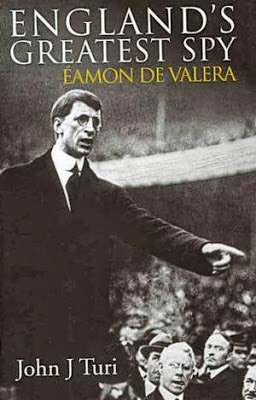
(left, Eamon deValera (1882-1975) was one of the dominant political figures in twentieth-century Ireland. His political career spanned from 1917 to 1973 and he served multiple terms as head of state.)
"The English.. operated the greatest espionage system in history....The English "mole" or "sleeper" planted--often for decades- in rival political circles, was part of this tradition of espionage" - John Turi
Makow- I believe Hitler and Bormann were other examples of the British "Sleeper."
In England's Greatest Spy- Eamon deValera, (2009) US Naval Intelligence veteran John J. Turi made the case that the "Father of Ireland" was a British agent. DeValera's actions consistently were disastrous for the Irish people and beneficial to England. The unanimous derision the book received from Irish "intelligentsia"
lends credence to Turi's claims. Here he provided a rebuttal to one contemptuous review.
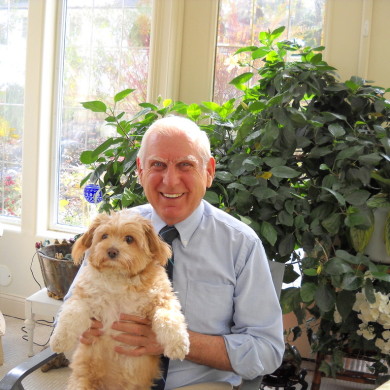 by John J. Turi
by John J. Turi (henrymakow.com)
I have recently been apprised of Mr. O Ruairc's comments regarding my book, England's Greatest Spy, Eamon deValera.
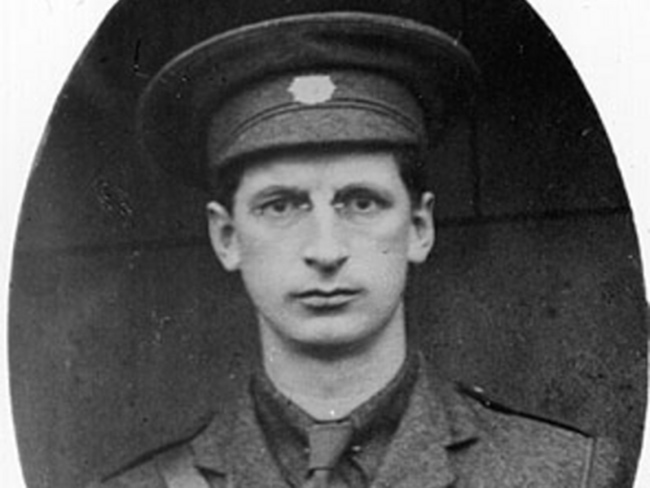 (Ireland's Savior?)
(Ireland's Savior?)He scoffs at my contention that the British were fully aware of the 1916 Rising and allowed it to take place in order for the English not to be perceived in American eyes as having initiated another repression of the Irish. His misplaced reference to a "machine gun massacre" was actually the words of Francis Sheehy-Skeffington, a Dublin pacifist, who recognized the obvious British plot to instigate a rebellion. John MacNeill also noted the British scheme to provoke the Irish into insurgency.
Mr. O Ruairc casts aspersions on my assertion that deValera initiated the civil war, not because the Free State Treaty failed to include an Irish Republic or the Irish President's false claim that it contained an oath of allegiance to the King of England but to prevent Michael Collins from coming to the aid of the Catholics and Nationalists of Northern Ireland who were being terrorized by the Unionists.
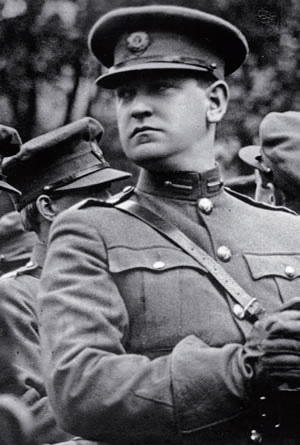 (Left, Michael Collins)
(Left, Michael Collins) Though he failed to recognize the conspirator, author Tim Pat Coogan actually set forth the real reason for the civil war. He noted Collins' fateful words to the IRA men of the North, "With this civil war on my hands, I cannot give you men the help I wish to give and mean to give. I now propose to call off hostilities in the North." The civil war was a boon for England as deValera created chaos in Southern Ireland before Collins could create chaos in Northern Ireland and it didn't cost the English a penny or a single soldier. The Irish people paid deValera's price.
DeValera, himself, had proposed two oaths. There was no oath of allegiance to the King in the Free State Treaty, only a promise to be faithful to the King as head of an association (Commonwealth) of which Ireland was but one member.
IRELAND'S FAUX "NEUTRALITY" IN WORLD WAR TWO
Surely, no rational person can believe that if the Nazis won the war, Ireland would not suffer a similar fate as the other conquered small countries. WWII was not only England's finest hour but also Ireland's as the Irish set aside centuries of repression and shipped every morsel of surplus food to feed the starving British. Hundreds of thousands of Irish men and women labored in English and Northern Ireland factories producing the sinews of war to sustain England until America could organize her industrial might to relieve the hard-pressed English. DeValera mobilized the entire country to provide England with every necessity Ireland could provide, turning over Ireland's entire fleet of oil tankers, cooperating militarily, economically and much, much more.
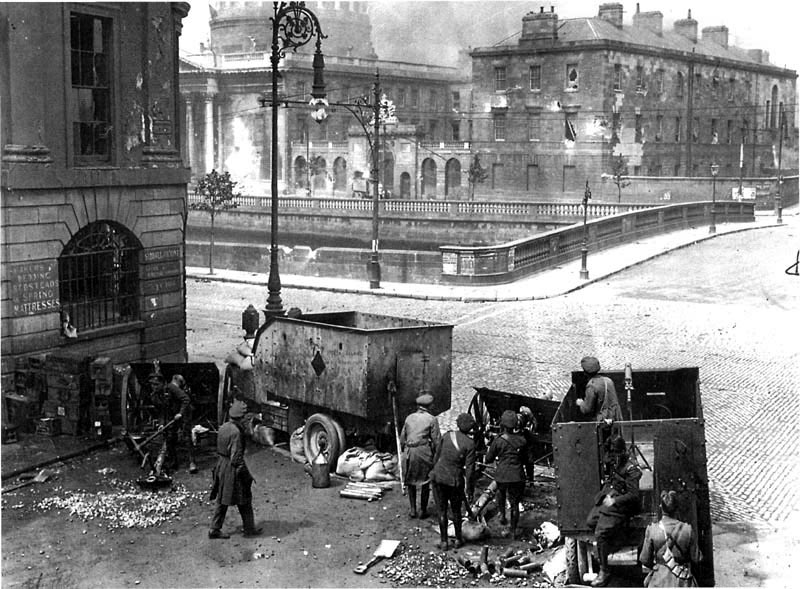 (L.NATIONAL ARMY BOMBARDS COURTS IN DUBLIN)
(L.NATIONAL ARMY BOMBARDS COURTS IN DUBLIN) CIVIL WAR HAVOC
Furthermore, Mr. Ruairc was critical of my categorizing the counterfeit republicans who followed deValera in making war on their own people as poor imitations of Hitler's Brown Shirts. After abandoning their demands for recognition of an Irish Republic on at least four occasions, they pontificated their republican credentials and their contempt for the rights of the majority of the Irish people who voted three to one in favor of the Free State Treaty. Under his absurd banner, "The majority has no right to do wrong," deValera unleashed his counterfeit republicans upon their own countrymen rampaging throughout Ireland murdering, beating, robbing and looting. They burned down the houses of their fellow countrymen solely because they supported the Free State Government and majority rule.
They torched Sean McGarry's home with his children inside. Mrs. McGarry pleaded with the counterfeit republicans to no avail and rushed into the blazing home to rescue her children. One little child died of horrible burns the following morning and Mrs. McGarry suffered serious burns as well. They wrecked newspaper offices because they dared to print news contrary to their liking, destroying printing presses, beating pressmen and setting fire to the buildings. The Hierarchy excommunicated these counterfeit republicans, rightly characterizing them as murderers and assassins. Mr. O Ruairc cannot grasp the significance that deValera, who initiated a civil war over the lack of recognition of an Irish Republic in the Free State Treaty, refused to declare an Irish Republic in all the years he was in office.







BB said (September 29, 2014):
I think that DeValara was a flawed but essentially well meaning character. The civil war was was largely his fault but I doubt whether
it was caused by his loyalty to the Crown.
Dev set about creating an Irish Republic (which he achieved after a number of years in power). He confined Irish Freemasons to the Seanead
(Senate) where they became largely irrelevant. He also worked closely with the Catholic Church, which helped to maintain high moral standards in the country for decades (divorce was only introduced in 1995, abortions are still illegal).
I have also noticed that Mr. Turi
refers to De Valera's Catholicism as "Papism" in a related discussion which leads me to believe he is coming from a Protestant background
and therefore he appears biased.
De Valera also kept Ireland out of the fratricide in Europe. Many Irishmen fought for the Brits, some fought for the Germans, but these were all volunteers.